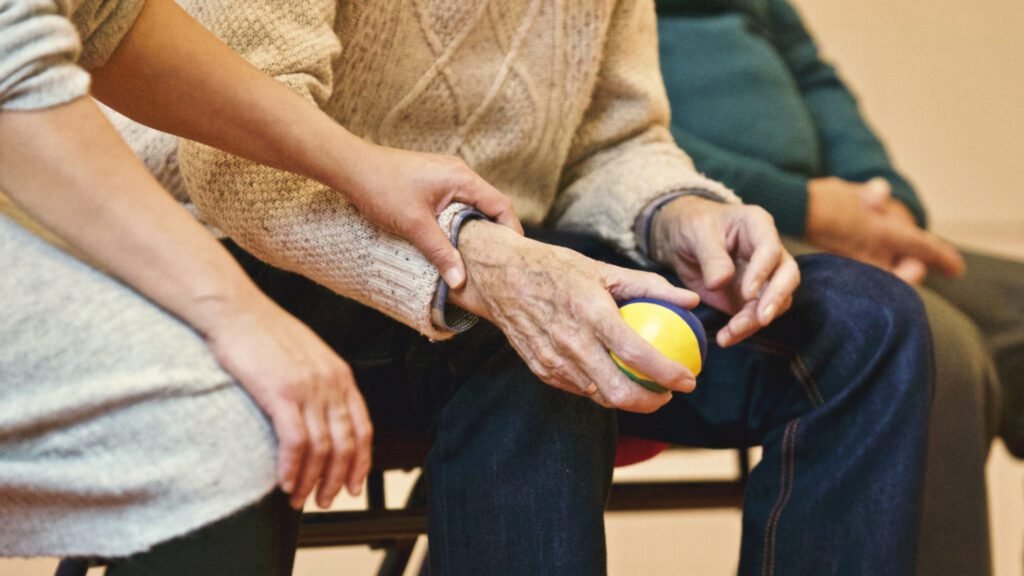Imagine a world where every person’s mental health is treated with the same importance as their physical health. A world where individuals are not afraid to seek help and society understands the significance of mental well-being. This is the goal of mental health advocacy, a crucial movement that aims to raise awareness, promote positive change, and ensure that everyone has access to the support they need. In this article, we will explore what mental health advocacy entails and why it is absolutely essential for the well-being of individuals and communities alike.
Understanding Mental Health Advocacy
Mental health advocacy is the process of supporting individuals with mental health conditions and working towards improving mental health outcomes for everyone. It involves promoting awareness, providing resources and support, fighting against stigma and discrimination, influencing policies and legislations, and creating systemic change. Mental health advocacy seeks to empower individuals, improve access to care, and build stronger support systems within the community.
Defining Mental Health Advocacy
Mental health advocacy can be defined as the collective efforts to protect and promote the rights, well-being, and dignity of individuals with mental health conditions. It encompasses various activities aimed at ensuring that individuals have access to appropriate care, treatment, and support services. These activities range from raising awareness about mental health issues to advocating for policy changes that prioritize mental health.
Objectives of Mental Health Advocacy
The objectives of mental health advocacy are multifaceted. Firstly, it aims to raise awareness and educate the public about mental health conditions, debunking misconceptions and reducing stigma. Advocates strive to create a supportive environment where individuals feel comfortable seeking help and talking openly about their mental health. Secondly, mental health advocacy seeks to provide support and resources to individuals with mental health conditions, ensuring they have access to proper care and treatment. Thirdly, advocates work towards fighting against stigma and discrimination, challenging societal views that contribute to the marginalization of individuals with mental health conditions. Fourthly, mental health advocacy plays a crucial role in influencing policy and legislation. Advocates engage with lawmakers, urging them to prioritize mental health in policy decisions and ensuring that laws protect the rights and well-being of individuals with mental health conditions. Lastly, mental health advocacy aims to create systemic change by addressing the underlying social, economic, and environmental factors that contribute to mental health disparities.
Importance of Mental Health Advocacy
Mental health advocacy is crucial for several reasons. Firstly, it helps improve access to mental healthcare by ensuring that individuals can easily access the services they need. Advocacy efforts aim to reduce barriers such as cost, availability, and stigma that often prevent individuals from seeking help. By improving access to care, mental health advocacy plays a vital role in preventing and treating mental health conditions effectively.
Secondly, mental health advocacy works towards reducing stigma and discrimination surrounding mental health. Through education, awareness campaigns, and challenging stereotypes, advocates strive to create a society that understands and accepts mental health conditions. By reducing stigma, individuals feel more comfortable seeking help and sharing their experiences without fear of judgment or discrimination.
Thirdly, mental health advocacy has a positive impact on mental health outcomes. By raising awareness, providing support, and influencing policies, advocates contribute to the overall well-being of individuals with mental health conditions. Through collaboration with healthcare professionals and policymakers, advocacy efforts can lead to improved treatment options, support systems, and resources for mental health.
Fourthly, mental health advocacy empowers individuals to become self-advocates. By providing knowledge, resources, and support, advocates help individuals develop the skills to navigate the healthcare system, access appropriate care, and make informed decisions about their mental health. This empowerment fosters resilience, autonomy, and a sense of control over their well-being.
Lastly, mental health advocacy works towards building stronger community support systems. By organizing events, support groups, and educational initiatives, advocates create spaces where individuals can connect with others who share similar experiences. These community networks provide a sense of belonging, validation, and support, which are crucial for mental well-being.
Types of Mental Health Advocacy
There are various types of mental health advocacy, each with its own focus and approach. These types include individual advocacy, group advocacy, policy advocacy, legal advocacy, and peer advocacy.
Individual Advocacy
Individual advocacy involves supporting and assisting individuals with mental health conditions on a one-on-one basis. Advocates help individuals navigate the healthcare system, access appropriate treatment, and understand their rights. They may accompany individuals to medical appointments, provide emotional support, and liaise with healthcare professionals on their behalf. Individual advocacy ensures that individuals receive personalized care, their voices are heard, and their rights are protected.
Group Advocacy
Group advocacy involves advocating for the rights and well-being of a specific community or group of individuals with mental health conditions. Through collective action, advocates work towards achieving common goals, such as improved access to care, increased funding for mental health services, and the removal of discriminatory practices. Group advocacy provides a platform for individuals to join forces, share their experiences, and amplify their voices for greater impact.
Policy Advocacy
Policy advocacy focuses on influencing policies and legislation to prioritize mental health. Advocates engage with lawmakers, government agencies, and other decision-makers to advocate for policies that promote mental well-being, improve accessibility of services, and protect the rights of individuals with mental health conditions. Policy advocacy involves research, lobbying, and public awareness campaigns to drive systemic change.
Legal Advocacy
Legal advocacy involves advocating for individuals with mental health conditions within the legal system. Advocates work towards protecting their rights, ensuring fair treatment, and preventing discrimination. This may include providing legal representation, advocating for changes in laws that adversely affect individuals with mental health conditions, and ensuring their access to accommodations and support services.
Peer Advocacy
Peer advocacy is a unique form of advocacy where individuals with lived experience of mental health conditions provide support and guidance to others facing similar challenges. Peer advocates draw from their own experiences and recovery journey to offer empathy, understanding, and practical assistance. They may provide resources, share coping strategies, and act as role models for individuals seeking help. Peer advocacy fosters a sense of connection, hope, and empowerment within the mental health community.

The Role of Mental Health Advocates
Mental health advocates play a crucial role in promoting the well-being of individuals with mental health conditions and driving positive change within society. Their responsibilities include raising awareness, providing support and resources, fighting against stigma and discrimination, influencing policy and legislation, and creating systemic change.
Raising Awareness
One of the primary roles of mental health advocates is to raise awareness about mental health issues. They strive to educate the public, debunk misconceptions, and challenge stereotypes associated with mental health conditions. Through public speaking engagements, social media campaigns, and awareness events, advocates aim to create a society that understands, accepts, and supports individuals with mental health conditions.
Providing Support and Resources
Mental health advocates play a vital role in providing support and resources to individuals with mental health conditions. They connect individuals with appropriate treatment services, support groups, and community resources that can aid in their recovery journey. Advocates may also offer emotional support, guidance, and assistance in navigating the healthcare system.
Fighting Stigma and Discrimination
Advocates are at the forefront of the fight against stigma and discrimination surrounding mental health. They challenge societal views, confront stereotypes, and promote a culture of acceptance and understanding. By sharing personal stories, advocating for equal rights, and organizing anti-stigma campaigns, advocates work towards creating a society that embraces mental health as an essential aspect of overall well-being.
Influencing Policy and Legislation
Mental health advocates play a significant role in influencing policy and legislation to prioritize mental health. They engage with lawmakers, government agencies, and other stakeholders to advocate for changes that support the mental well-being of individuals. Advocates provide evidence-based research, propose policy recommendations, and raise awareness about the importance of mental health in decision-making processes.
Creating Systemic Change
Advocates work towards creating systemic change by addressing the underlying social, economic, and environmental factors that contribute to mental health disparities. They collaborate with organizations, communities, and policymakers to identify and address systemic barriers that prevent individuals from accessing appropriate care and support. By creating a more equitable and inclusive society, advocates strive to improve overall mental well-being.
Benefits of Mental Health Advocacy
Mental health advocacy brings about several benefits for individuals, communities, and society as a whole.
Improved Access to Mental Healthcare
One of the significant benefits of mental health advocacy is improved access to mental healthcare. By raising awareness, influencing policies, and providing support, advocates help break down barriers that often prevent individuals from seeking help. Advocacy efforts contribute to the development of services that are affordable, accessible, and tailored to the specific needs of individuals with mental health conditions.
Reduced Stigma and Discrimination
Mental health advocacy plays a crucial role in reducing stigma and discrimination surrounding mental health. By challenging stereotypes, promoting understanding, and debunking misconceptions, advocates work towards creating a society that accepts and supports individuals with mental health conditions. This reduction in stigma encourages individuals to seek help without fear of judgment or discrimination, leading to improved overall mental health outcomes.
Enhanced Mental Health Outcomes
Advocacy efforts have a positive impact on mental health outcomes. By providing support, resources, and education, advocates contribute to early intervention, proper treatment, and recovery for individuals with mental health conditions. The increased awareness and access to care facilitated by advocacy result in improved mental well-being and quality of life.
Empowerment and Self-Advocacy
Mental health advocacy empowers individuals to become self-advocates. By providing knowledge, resources, and support, advocates help individuals develop the skills to navigate the healthcare system, access appropriate care, and make informed decisions about their mental health. This empowerment fosters resilience, autonomy, and a sense of control over their well-being.
Stronger Community Support Systems
Advocacy efforts contribute to the development of stronger community support systems. By organizing events, support groups, and educational initiatives, advocates create spaces where individuals can connect with others who share similar experiences. These community networks provide a sense of belonging, validation, and support, which are crucial for mental well-being. Increased community support allows individuals to access the resources and networks necessary for ongoing recovery and resilience.

Key Principles of Mental Health Advocacy
Mental health advocacy is guided by several key principles that shape its approach and ensure ethical and effective advocacy efforts.
Promoting Autonomy and Self-Determination
The principle of promoting autonomy and self-determination recognizes that individuals with mental health conditions have the right to make decisions about their own care and treatment. Advocates respect and support individuals’ choices, providing information and resources to facilitate their decision-making process. This principle empowers individuals to be active participants in their recovery journey.
Respecting Confidentiality and Privacy
Advocacy efforts are built on the principle of respecting confidentiality and privacy. Advocates ensure that individuals’ personal information is protected and kept confidential, respecting their right to privacy. Confidentiality allows individuals to feel safe and comfortable sharing their experiences and seeking support without fear of their personal information being shared without their consent.
Ensuring Cultural Sensitivity
Mental health advocacy recognizes the importance of cultural sensitivity in addressing the diverse needs and experiences of individuals. Advocates strive to understand and respect cultural beliefs, practices, and values, ensuring that their advocacy efforts are inclusive and relevant to all individuals. Cultural sensitivity fosters an environment where individuals feel understood, respected, and supported.
Addressing Intersectionality
Intersectionality is a key principle in mental health advocacy, recognizing that individuals may face multiple forms of discrimination based on various aspects of their identity, such as race, gender, sexuality, or disability. Advocates work towards addressing these intersecting oppressions and ensuring that advocacy efforts are inclusive and intersectional. By acknowledging and addressing the unique challenges faced by individuals, advocacy becomes more effective and ensures that no one is left behind.
Empathy and Non-Judgmental Approach
Advocates approach their work with empathy and a non-judgmental attitude. They create a safe and supportive environment where individuals can share their experiences without fear of judgment. By fostering empathy, advocates promote understanding, compassion, and validation, creating a space where individuals feel heard and supported.
Collaboration and Partnership
Mental health advocacy acknowledges the importance of collaboration and partnership. Advocates actively seek partnerships with stakeholders, including healthcare professionals, policymakers, community organizations, and individuals with lived experience. By working collaboratively, advocates leverage diverse perspectives and resources to drive meaningful change and ensure that mental health remains a priority.
Challenges and Barriers in Mental Health Advocacy
While mental health advocacy is essential, it does face various challenges and barriers that need to be addressed to ensure effective and sustainable advocacy efforts.
Stigma and Misconceptions
One of the significant challenges in mental health advocacy is the persistence of stigma and misconceptions surrounding mental health. Deep-rooted societal views, stereotypes, and discriminatory practices can hinder advocacy efforts. Advocates face the challenge of challenging these misconceptions and raising awareness to create a supportive and understanding society.
Limited Resources and Funding
Mental health advocacy often faces limited resources and funding, which can impact the scope and impact of advocacy initiatives. Adequate funding is essential for organizing awareness campaigns, supporting individuals, and driving policy changes. Advocates navigate the challenge of securing funding and resources to sustain their efforts and make a lasting impact.
Power Imbalances
Power imbalances within the mental health system can pose a challenge to effective advocacy. Advocates may face resistance or obstacles when engaging with policymakers, healthcare professionals, and other stakeholders who hold decision-making power. Navigating these power dynamics requires strategic communication and collaboration to achieve desired outcomes.
Lack of Mental Health Literacy
A lack of mental health literacy among the general public can hinder advocacy efforts. Limited understanding of mental health conditions and their impact can contribute to stigma, discrimination, and the perception that mental health is not a priority. Advocates must address this challenge by providing education, raising awareness, and promoting accurate information about mental health to foster a more informed and supportive society.
Institutional Resistance
Institutional resistance can pose a significant challenge to mental health advocacy. Existing systems, policies, and practices may be resistant to change or reluctant to prioritize mental health. Advocates may face pushback or resistance when advocating for policy changes or improved access to care. Overcoming this challenge requires persistence, collaboration, and evidence-based advocacy efforts.
Navigating Complex Systems
Navigating complex systems within the mental health landscape can be challenging for advocates. The multitude of healthcare providers, insurance systems, and legal frameworks can create barriers to accessing care and support. Advocates must navigate these complex systems and assist individuals in understanding their rights, accessing appropriate services, and overcoming bureaucratic hurdles.

The Impact of Mental Health Advocacy
Mental health advocacy has a wide-ranging impact on individuals, communities, and society as a whole. Its influence extends beyond individual well-being, shaping public attitudes, policies, and systems.
Reducing Disparities in Mental Healthcare
Mental health advocacy plays a vital role in reducing disparities in mental healthcare. By advocating for improved access, affordability, and quality of care, advocates work towards closing the gap between those who receive adequate mental healthcare and those who do not. The advocacy efforts contribute to creating a more equitable healthcare system that addresses the diverse needs of individuals.
Promoting Inclusion and Equity
Advocacy efforts contribute to promoting inclusion and equity within society. By dismantling discriminatory practices, challenging stereotypes, and addressing systemic barriers, advocates advocate for a society that values and supports the mental well-being of all individuals, regardless of their background, identity, or socioeconomic status. Mental health advocacy fosters a more inclusive and equitable society where everyone has equal opportunities to thrive.
Shaping Public Attitudes and Policies
Mental health advocacy has the power to shape public attitudes and policies surrounding mental health. By raising awareness, challenging stereotypes, and sharing personal stories, advocates influence public opinion, reduce stigma, and promote understanding. This shift in public attitudes, in turn, influences policy and decision-making processes, leading to the development of policies and legislation that prioritize mental health.
Preventing Mental Health Crises
Advocacy efforts contribute to preventing mental health crises by promoting early intervention, support, and access to care. By raising awareness about mental health conditions, providing resources, and reducing stigma, advocates create an environment where individuals feel comfortable seeking help before their mental health deteriorates. This prevention-focused approach leads to improved outcomes and reduces the burden on emergency services.
Improving Overall Quality of Life
Mental health advocacy contributes to improved overall quality of life for individuals with mental health conditions. By advocating for improved access to care, reduced stigma, and enhanced support systems, advocates create an environment where individuals can live fulfilling and meaningful lives. Mental well-being becomes a priority, leading to improved relationships, increased productivity, and enhanced overall quality of life.
Prominent Mental Health Advocacy Organizations
Numerous mental health advocacy organizations work tirelessly to promote mental well-being, reduce stigma, and drive positive change. These organizations provide resources, support, and platforms for individuals to participate in advocacy efforts. Some prominent mental health advocacy organizations include:
National Alliance on Mental Illness (NAMI)
NAMI is the largest grassroots mental health advocacy organization in the United States. It provides support, education, and advocacy for individuals with mental health conditions and their families. NAMI conducts awareness campaigns, offers support groups, and advocates for policies that promote mental well-being.
Mental Health America (MHA)
MHA is a leading community-based mental health organization in the United States. It focuses on promoting mental health, preventing mental health conditions, and advocating for the rights of individuals with mental health conditions. MHA provides educational resources, tools for individuals to assess their mental health, and advocates for policy changes that prioritize mental health.
National Institute of Mental Health (NIMH)
NIMH is a U.S. federal agency dedicated to advancing the understanding and treatment of mental health conditions. While not strictly an advocacy organization, NIMH plays a critical role in funding research, promoting evidence-based practices, and disseminating information to the public. NIMH’s work contributes to the overall advancement of mental health advocacy efforts.
World Federation for Mental Health (WFMH)
WFMH is an international advocacy organization working towards the promotion of mental health and the prevention of mental health conditions. It collaborates with governments, organizations, and individuals worldwide to advocate for mental health equity, raise awareness, and promote evidence-based practices. WFMH organizes World Mental Health Day and supports advocacy initiatives across the globe.
Bring Change to Mind
Bring Change to Mind is a U.S.-based nonprofit organization focused on ending the stigma and discrimination surrounding mental health. Founded by actress Glenn Close, Bring Change to Mind engages in advocacy efforts, conducts youth programs, and provides resources for individuals to share their stories and raise awareness about mental health.
These organizations, among many others, provide individuals with opportunities to get involved in mental health advocacy, access resources, and support ongoing efforts to improve mental well-being.
How to Get Involved in Mental Health Advocacy
Getting involved in mental health advocacy is a powerful way to contribute to positive change and support individuals with mental health conditions. Here are some ways to get involved:
Educate Yourself on Mental Health Issues
Start by educating yourself on mental health issues, current research, and evidence-based practices. Attend workshops, read books and articles, and engage with reputable sources of information. This knowledge will equip you to share accurate information, challenge misconceptions, and advocate effectively.
Join or Support Advocacy Organizations
Consider joining local or national mental health advocacy organizations. These organizations offer opportunities to volunteer, contribute to campaigns, and participate in advocacy efforts. If joining is not feasible, support these organizations through donations or sharing their resources and initiatives within your community.
Share Your Experience and Raise Awareness
If you have personal experiences with mental health conditions, consider sharing your story to raise awareness and reduce stigma. Sharing your experiences humanizes mental health, inspires others, and contributes to a more compassionate society. This can be done through social media, public speaking engagements, or by participating in advocacy events.
Contact Your Legislators
Engage with your legislators by writing letters, making phone calls, or scheduling meetings to discuss mental health issues. Advocate for policies that prioritize mental health, increase funding for mental healthcare, and protect the rights of individuals with mental health conditions. Sharing personal stories and evidence-based research can have a significant impact on policy decisions.
Attend or Organize Mental Health Events
Participate in mental health events, such as conferences, workshops, or awareness campaigns. These events provide opportunities to learn, network, and contribute to advocacy efforts. If possible, consider organizing your own mental health event, partnering with local organizations to raise awareness and promote action within your community.
Volunteer or Donate to Mental Health Causes
Volunteering your time and skills to mental health organizations can make a meaningful difference. Offer your support at local mental health clinics, helplines, or community programs. If volunteering is not an option, consider making financial donations to support advocacy initiatives and provide resources for individuals in need.
By taking these steps, you can contribute to mental health advocacy efforts, raise awareness, and advocate for positive change within your community.
Conclusion
Mental health advocacy is essential for promoting the well-being of individuals with mental health conditions, reducing stigma, and driving positive change. It involves raising awareness, providing support and resources, fighting against discrimination, influencing policies, and creating systemic change. Mental health advocacy improves access to care, reduces stigma and discrimination, enhances mental health outcomes, promotes self-advocacy and empowerment, and strengthens community support systems. By incorporating key principles such as autonomy, confidentiality, cultural sensitivity, and collaboration, advocates can overcome challenges and make a lasting impact. Mental health advocacy organizations, such as NAMI, MHA, NIMH, WFMH, and Bring Change to Mind, provide resources and platforms for individuals to participate in advocacy efforts. To get involved in mental health advocacy, educate yourself, join or support advocacy organizations, share your experiences, contact legislators, attend or organize events, and volunteer or donate to mental health causes. Together, we can continue to prioritize mental health and create a collaborative approach to support individuals and promote mental well-being.
